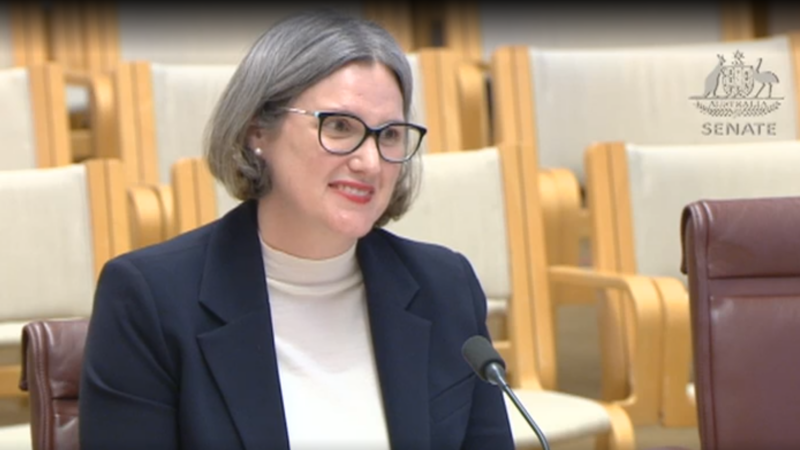
Coles boss points to Amazon, Costco, Aldi, Bunnings as ‘significant and credible competitors’
Coles boss, Leah Weckert, has pointed to Aldi, Amazon, Chemist Warehouse, Bunnings, and even Costco as credible competitors as she denies that Australia has a supermarket oligopoly.
The comments were made on Thursday during the ongoing ACCC hearings into the competition watchdog’s supermarket inquiry.
Acting for the ACCC, barrister Naomi Sharp pointed out that Woolworths holds a 38% market share, while Coles has 29%.
Weckert admitted “there is a degree of concentration in the supermarket channel in Australia”, but argued that “an oligopoly implies that there’s a lack of competition” and therefore she doesn’t agree this is the current situation in Australia.
“There are two large retailers but the important point is do they compete. I assure you that competition is very fierce,” she said.
Weckert also pointed to the likes of Costco, which she claims is used by customers “to stock up on toilet paper, health and beauty items, those items that last a long time,” and that Coles attempts to compete with the American bulk buy supermarkets with its multi-buy specials.
Weckert said Aldi – which currently holds 9% of the market share – is also a “significant and credible competitor” as customers are “very, very sensitive to price, particularly at this point in time” and that the supermarket had positioned itself as being the budget-friendly option.
“The vast majority of the population, I believe it’s something like 75% of the population, have an Aldi within 10 minutes of them now,” she said.
“[Aldi] have very broad coverage of our customer base. For us on many essential products, you know, they are the price benchmark in the market that we’re seeking to meet.”
Weckert suggested Aldi competes not just on pricing, but with “high end chocolate” and “some of their French cheeses”.
“So it’s not just basic essentials that they have, but they have a wide range of also more what I describe as higher tier or premium, affluent products as well,” she said.
Weckert said Bunnings and Chemist Warehouse need to also be considered as competition, given their footprint and the many cross-over items available for sale in both.
Amazon meanwhile, is building robotics distribution centres in Sydney and Melbourne, allowing it to compete at scale in the supermarket sector – something it has successfully done in the US.
Weckert said because of Amazon’s range of products, they are able to sell food items at a loss in order to penetrate the Australian market and therefore offer grocery that are “priced very competitively”.
“In the areas they’re competing with us, given the growth that we’re seeing, and the information that we’re seeing come back from suppliers, this is something that we’re paying attention to and worry about.
“That is quite disruptive to our business model.”





